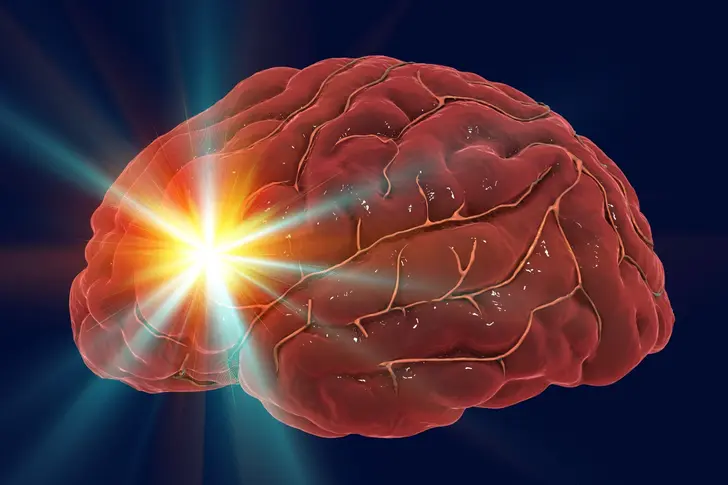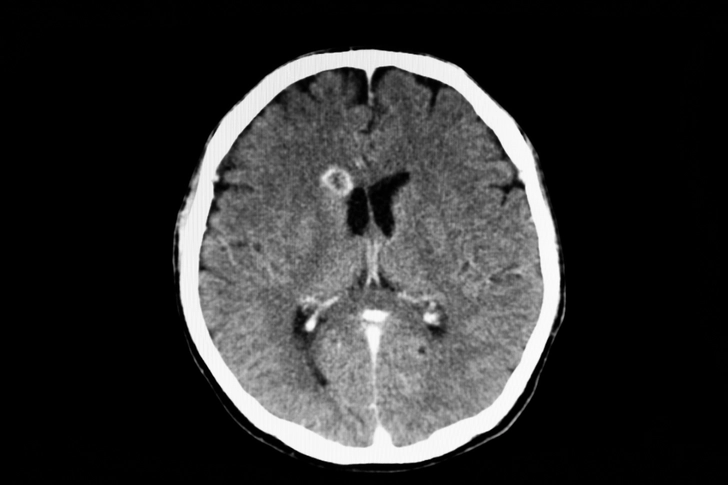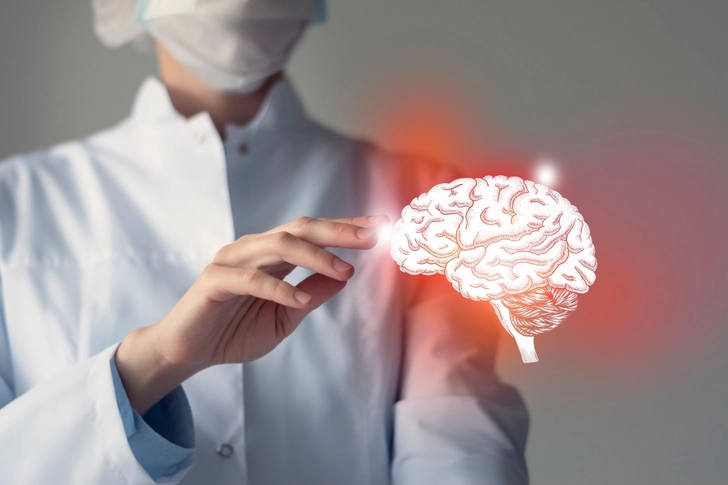- Headaches Overview
- Migraine
- Cluster & Tension Headaches
- Other Types of Headaches
- Appointment Prep
- View Full Guide
Do Migraines Cause Brain Damage?


Do Migraines Cause Brain Damage?
Studies show that people who have migraine, especially with aura, are more likely to develop these brain lesions over time. The exact reason isn't fully understood, but it's likely related to changes in blood flow during migraine attacks.


Types of Lesions
Migraines are linked to white matter lesions and infarct-like lesions. White matter lesions are common in older adults and linked to neurological conditions, while infarct-like lesions result from restricted blood flow, leading to small areas of dead tissue.

Impact on Brain Health
The presence of brain lesions in people with migraine doesn't usually affect long-term brain health. Studies show no significant cognitive decline in migraine patients compared to people without migraine.

Preventive Measures
Manage migraine frequency to reduce lesion risk. Consult your doctor for treatments, avoid triggers, reduce stress, stay active, and maintain consistent sleep patterns. These steps can help keep your brain healthy.
PHOTO CREDITS:
Slide 1: Kateryna Kon/Shutterstock
Slide 2: Tomatheart/Shutterstock
Slide 3: mi_viri/Shutterstock
Slide 4: Gorodenkoff/Shutterstock
Slide 5: janews/Shutterstock
SOURCES:
American Headache Society: “Post-Traumatic Stress Disorder (PTSD) & Migraine,” “Migraine with Aura Shown to be an Important Risk Factor for all Strokes in Women,” “Is It My Allergies?”
Anxiety and Depression Association of America: “Headaches.”
George R. Nissan, DO, FAHS, neurologist and clinical research medical director, North Texas Institute of Neurology And Headache, Texas Headache Center.
The Epilepsy Foundation: “Migraine & Epilepsy.”
Epilepsy Research UK: “The Link Between Epilepsy And Migraine.”
The Migraine Trust: “Stroke and migraine.”
Montefiore Medical Center: “Pregnant Women with Severe Migraine May Be At Increased Risk for Labor and Delivery Complications.”
NIH Research Matters: “Migraines Tied to Greater Heart Attack Risk in Men.”
Acta Neurologica Scandanavica: “Hypertension in headache patients? A clinical study.”
Cephalalgia: “Migraine is a risk factor for sudden sensorineural hearing loss: a nationwide population-based study,” "Migraine with and without Aura: Association with Depression and Anxiety Disorder in a Population-Based Study. The HUNT Study.”
Headache: “Frequency of Migraine Headaches in Patients With Fibromyalgia.”
Journal of Headache and Pain: “Migraine and fibromyalgia.”
National Institute on Deafness and Other Communication Disorders, National Institutes of Health: “Sudden Deafness.”
Otolaryngology-Head and Neck Surgery: “Clinical practice guideline: sudden hearing loss.”
Cleveland Clinic: “Chronic Migraine,” “Migraine Headaches,” “Headaches,” “Cerebrospinal Fluid (CSF) Leak.”
Merck Manual Consumer Version: “Overview of Brain Tumors,” “Migraines.”
Practical Neurology: “Migraine Mimics.”
Mayo Clinic: “Brain aneurysm,” “Migraine,” “Headache,” “Tension headache,” “Meningitis,” “Seizures.”
Johns Hopkins Medicine: “Types of Seizures,” “Evaluation of a First-Time Seizure,” “Focal Seizures.”
American Stroke Association: “Ischemic Stroke (Clots),” “Learn More Stroke Warning Signs and Symptoms,” “Stroke Symptoms,” “About Stroke,” “What migraine sufferers need to know about stroke risk.”
Stroke Association: “Migraine and stroke.”
American Academy of Ophthalmology: “Flashes of Light.”
American Migraine Foundation: “Understanding Ocular Migraine,” “Silent Migraine: A Guide,” “Sinus Headaches.”
Cedars Sinai: “Cerebrospinal Fluid Leak,” “Reversible Cerebral Vasoconstriction Syndrome (RCVS).”
National Eye Institute: “Idiopathic Intracranial Hypertension,” “Types of Glaucoma,” “Glaucoma.”
National Organization for Rare Disorders: “Idiopathic Intracranial Hypertension.”
BrightFocus Foundation: “Does Glaucoma Cause Headaches?”
Intracranial Hypertension Research Foundation: "Headache."
Biomed Research International: “Association of Migraine and Irritable Bowel Syndrome in Saudi Arabia: A Nationwide Survey.”
Journal of Neurology, Neurosurgery & Psychiatry: “Association between restless legs syndrome and migraine.”